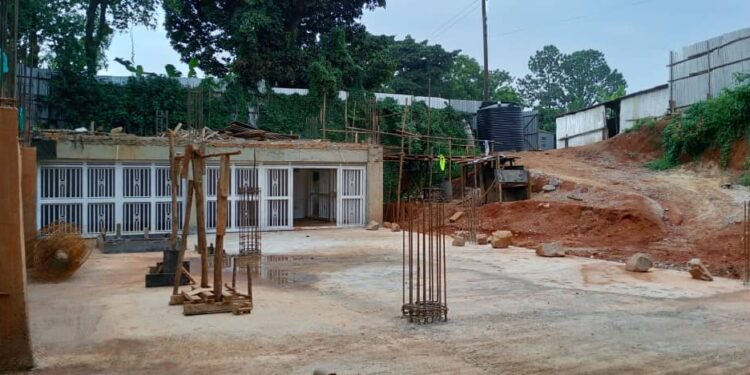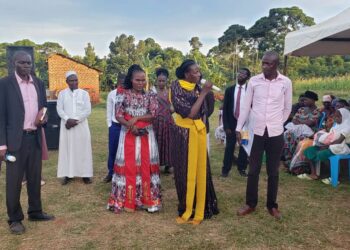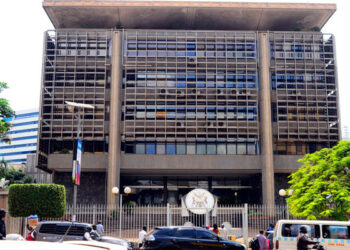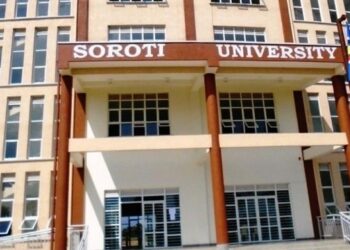Imagine a small room, barely enough for two chairs and tables, where women crowded together for a single purpose: to ignite change. This humble space was the first “office” for the Alliance for Women Advocates for Change (AWAC), a grassroots organization born out of necessity a sanctuary for grassroot Female Sex Workers (FSWs) with multiple and intersection vulnerabilities fighting for dignity, inclusion, social protection safety, and community support.
AWAC started from within, uniting brave women such as Macklean Kyomya who sought to change the stigmatizing narratives about their lives and professions. The early days were marked by limited space and resources, yet determination filled every inch. Small gatherings, cramped into rooms and corridors, laid the foundation for a larger dream: to support grassroot women with multiple and intersecting vulnerabilities who faced social and economic vulnerabilities that left them marginalized and voiceless. These courageous women, compelled to fight for change, soon found themselves outgrowing their confined space.
In 2015, AWAC began formally organizing in Kampala, supporting FSWs with multiple and intersection vulnerabilities to overcome judgment and adversity. But beyond Kampala, the challenges were starkly different. In rural regions and peri-urban settings, the FSWs faced even harsher conditions: myths and stigmas clung to their work, lodge owners treated them as property, and access to essential services was often blocked unless they paid bribes.
Health resources and basic needs like condoms, HIV testing, and even sanitary supplies especially to women who use drugs, FSWs living with disabilities young women engaging in sex work and sex workers in humanitarian settings were scarce, and the FSWs with multiple and intersection vulnerabilities found themselves trapped in cycles of poverty and vulnerability.
AWAC rose to these challenges through organizing outreach in towns across grassroot advocacy campaigns, community social cohesion dialogues, and documenting sex workers’ stories and experiences across Uganda, where their presence brought not just health services but hope. In each district, FSWs shared their stories, and AWAC’s vision spread, igniting a movement for rights and dignity.
“In the Central region at that stage of 2015, the sex worker movement was talking about organizing to change policies and repealing punitive laws, decriminalization of sex work. But in the rural districts, FSWs with multiple and intersecting vulnerabilities were still saying, ‘Is it possible for you to get us mobile services or mobile clinic services, which was not a problem in Kampala? Is it possible for us to access condoms? FSWs were still using polythene bags, washing them, and using them for sexual services. Sex workers were still washing condoms and reusing them with their clients,” she said.
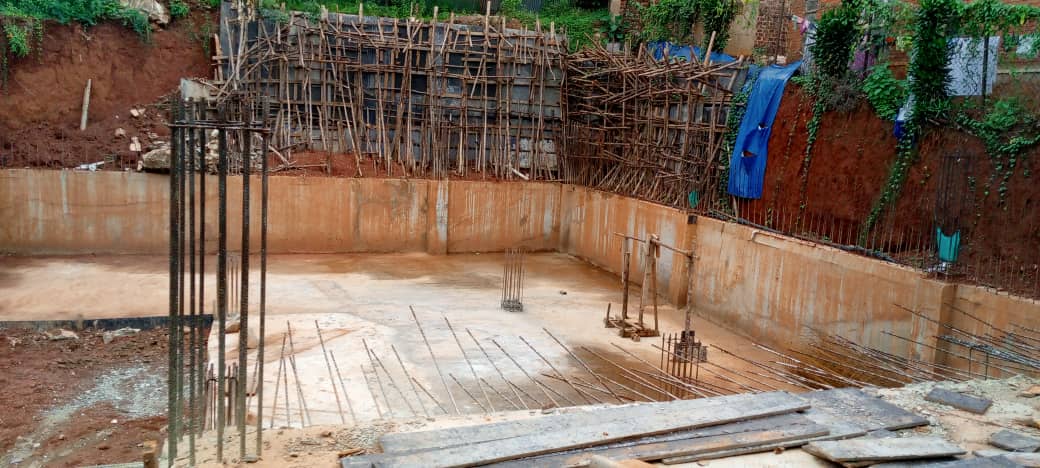
Kyomya Macklean who is the current Executive Director of AWAC noted that there was a common misconception that sex work was limited to urban centers. However, this belief was incorrect. “We found that sex workers were also present in rural districts, not just in the cities,” Kyomya explained. “In the towns and rural areas, we identified many sex workers operating on the streets and brothels. During our nighttime mapping and profiling FSWs in Rwenzori and Teso region, we encountered numerous sex workers speaking different languages, which highlighted the diverse presence of sex workers even in these less urbanized areas.”
As a way of empowering grassroot sex workers from hard-to-reach areas, AWAC established Community Health and Livelihood Enhancement Groups (CHLEG)to improve the health and socio-economic status of FSWs (FSWs) in Uganda. The CHLEGs model is comprised of the following; Health Support: Regular health talks during weekly meetings on adherence support, Retention in care, stigma reduction counseling, Viral load suppression, Status disclosure, mental health and self-care, behavioral changes, climatic changes and conservation, HIV testing, ART /PrEP initiation and ART/PrEP Refills. Socio-Economic Empowerment: Savings, loans, the welfare of the members, business start-ups, and entrepreneurship training. Safe Spaces: Providing a supportive environment and psychosocial support for FSWs and AGYW engaging in sex work including those facing mental health challenges. Community Engagement: Active involvement of Female Sex Worker communities in awareness, support networks, and peer-to-peer support for access to HIV services. Moreso, CHLEGs are started and led by female sex worker peer leaders at the hotspot level, ensuring confidentiality and effective management and governance of CHLEGs in the 27 different districts of Uganda.
In a town where the night’s stars often shone brighter than the hope in people’s hearts, there stood an office a sanctuary, a beacon for those forgotten by the world. For the marginalized women, especially the FSWs with multiple and intersecting vulnerabilities whose stories were as silent as the dawn, this place was like the morning sunshine chasing away the shadows of despair.
But as more souls found their way there, the small office grew crowded, overflowing with hope. And as the old saying goes, “When you give, even the heavens make room.” True to this, in 2020, a door to something bigger swung open, a place where their dreams could stretch and breathe, where hope found room to grow wings.
In 2020, AWAC relocated to Mengo-Rubaga Division, Kampala City, Plot 10, Nabulagala Road off Balintuma Road where this organization blossomed into a home for over 30 registered groups helping over 32,000 sex workers with safe spaces for skilling workshops, HIV counseling, testing, referrals and linkage therapy sessions for harm reduction services, drama sessions and gatherings.
It became a hub for change, where FSWs with multiple and intersecting vulnerabilities brought their children for daycare and access to health services, connected with others for healing and therapy, and took refuge from societal rejection. However, despite the progress made, AWAC recently faced an eviction notice, threatening to dismantle the sanctuary that had become so essential to thousands.
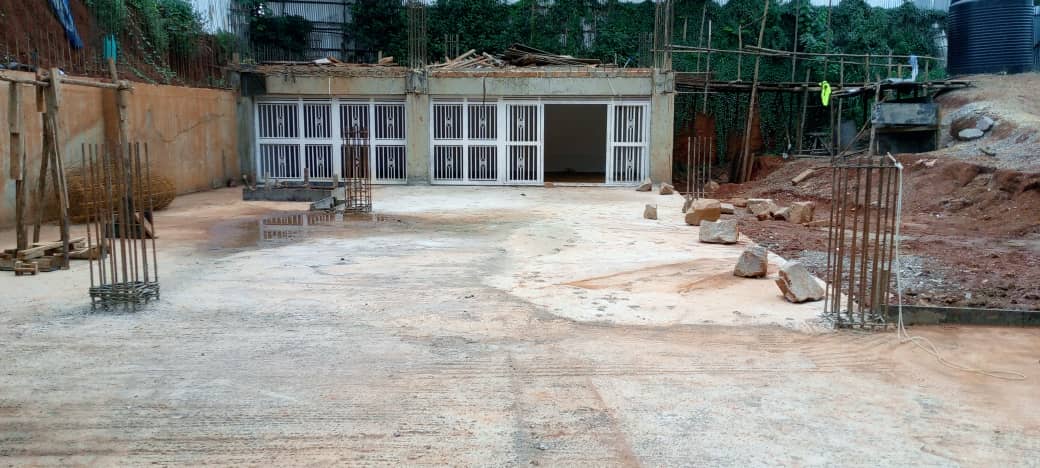
Resty Kyomukama Magezi, the Deputy Executive Director of AWAC, informed Watchdog Uganda that relocating to Mengo has created new opportunities to support grassroots female sex workers facing multiple and intersecting vulnerabilities. The move has facilitated the introduction of additional health services, including cancer screening, access to post-abortion care, enhanced upskilling initiatives, and empowerment programs.
“This was also an opportunity to serve more FSWs because it was no longer a small thing for looking at a small population, we realized that there were very many FSWs who needed support, especially in HIV programming. In this place, we had established a perfect home for all FSWs with multiple and intersecting vulnerabilities and it became their center of hope. Not only that it became a home of upskilling for FSWs,”she said.
According to Kyomukama, the empowerment projects aim to create safe spaces for FSWs with multiple and intersecting vulnerabilities, connecting them with other marginalized women facing similar challenges. “In these supportive circles, all FSWs in their diversity can openly say, ohh I’m struggling I need a loan, or I need help with this or that. This led to the formation of “a Harmonized Community Health and Livelihood Enhancement Groups SACCO,” providing a foundation where all FSWs in their diversities can save with it and borrow to enable them to start small businesses and earn a living, reducing their vulnerability to risk behaviors.
She added, “Vulnerability is often at the root of their choices, as many turn to sex work not out of preference but out of necessity to care for their children and support their families. Without any safety net, they might take risks, like engaging in unprotected sex for as little as 10,000, just to ensure they can feed their children. However, with access to these support groups, they gain options: they can borrow money instead of taking life-threatening risks. It’s a way to reclaim control and make safer choices. But when vulnerability leaves someone with no other options, they’ll feel pressured to do anything to survive.”
What began as a small idea among a few resilient marginalized FSWs has blossomed into AWAC a unique anchor for marginalized FSWs, especially for women who use drugs, FSWs living with disabilities, young women engaging in sex work, and sex workers in humanitarian settings whose lives have been fractured by discrimination, stigma, and prejudice. AWAC has become a sanctuary not only for sex workers but also for anyone facing challenges, offering hope and a safe space.
“Mengo became our ideal center,” shared Kyomya. “We set up a community-friendly clinic offering free services to any sex worker who came through our doors. With this larger space, we expanded our efforts to include a variety of services, from health checkups to counseling. It became a Hub of Holistic Transformation providing comprehensive and integrated health, social, and human rights services to every sex worker in Uganda.”
But as the river flows, so do the twists of fate. In 2024, a shadow fell over AWAC’s sanctuary a letter arrived from the property owners, announcing eviction. AWAC, determined as always, asked if they could buy the place, hoping to turn this soil of sanctuary into a lasting home. But the owners, with minds clouded by judgment, refused, saying, “We will not sell for sin money.”
As the proverb goes, “A bird in need finds no soft nest.” AWAC’s intentions were pure, yet they faced closed doors because they served those whom society often casts aside. Even gold, it seemed, could turn to dust in the eyes of those who held prejudice in their hearts.
“Relocating would require a significant amount of money, as the current office had cameras, security systems, and other installations that would need to be dismantled and set up again elsewhere. Moving meant transporting everything office furniture, equipment, and all our resources yet the funds just weren’t there. So, we started spreading the word about our eviction, explaining that we needed financial support to make this transition possible. We needed funds not only for the move itself but also to reinstall all the necessary infrastructure to keep our operations secure and effective in a new space,” she said.
The storm came without warning, sweeping away the walls of the sanctuary where many found solace and health. “A river cannot flow backward,” they say, and so it is for AWAC, once a wide, welcoming haven, now confined to a narrow place that holds but a few. What once served as a harbor for the weary now struggles to shelter all who seek its comfort. As the banyan tree provides shade to many, so did AWAC—but now, only a handful can stand beneath its branches. A home, after all, is not just walls but the arms that embrace it, and this eviction threatens to close those arms to the many who once called this place their own.
“It came as a surprise, and like it was an overturn of everything, of every developed development we have done here, of all the programs that were running. So, it meant we had to either overturn or strategize or find another place that we could move to continue running our services because it was taking almost 70% of the space. The safe space of economic empowerment was to be terminated. The clinic itself was off. The therapy group sessions were off. Spaces were off. The container was off. So, we only remained with one house, which was not enough for the clinic or the DIC, but also for the safe space for activities, and also even in the in the house, one main, again, we were not very sure. So, we were left with no option but to find another place,” said teary Kyomya.
AWAC has embarked on a campaign to mobilize financial support towards the construction of AWAC HHoT (Hub of Holistic Transformation) from investment angels, AWAC friends development partners, board members, grassroot members, humanitarian organizations, and all well-wishers.
Like many small rivers joining to form a mighty lake, their contributions poured in, each shilling a testament of belief. The spider’s web may be delicate, but woven together, it is strong. The sweetest moment, though, was when young deaf girls pooled together UGX 50,000 to show their love, passion, and support. It was then I knew: with such hands holding us up, no mountain is too high, no river is too wide. When hearts unite, even the smallest gifts become pillars of strength.”
“We were at that moment, looking into relocating to any place we could rent, but we saw that the money we had accumulated could buy us space, and some of our development partners also encouraged us to relocate to ensure sustainability and to avoid more future evictions,” said Kyomukama.
Just as the potter shapes clay unseen, so were plans laid beyond AWAC’s sight. Through the goodwill of many, hands reached out and hearts opened; in the spirit of unity, they gathered stones to lay a new foundation. Now, a plot of land stands firm, a promise of a lasting home, for sometimes what seems lost is simply making way for something greater.
Through perseverance and the support of many, AWAC has acquired a plot of land—its very own foundation. With the little hard-earned money they had, they rolled up their sleeves and set to work. Slowly but surely, the ground was leveled, clearing the way for the future.
Today, the foundation of their dream is already halfway built—a concrete slab that will one-day support towards AWAC’s safe space referred as Phase 2 comprised of: Basement 1 and 2; Reception and Lounge; Waiting areas; Drop-in Centre (DiC) – Community Hospital at Health Centre 1V Level; Offices for Renting for AWAC’s Sustainability; Research, Learning and Development; Conference Hall and Audio -Visual Production for community; AWAC Secretariat/Managerial Offices; Economic Empowerment Centre (EEC) and Community Health Enhancement and Livelihood Groups (CHLEG) -Circle/ Female Sex Workers Bank and Roof Top Terraces with all the green garden for healing.
It’s a quiet testament to their resilience, a place that will soon stand as a symbol of hope, built on hard work, sacrifice, and unwavering belief in a better future.
With the funds and support from our development partners, members, and stakeholders, we’ve made significant progress on our site. We’ve managed to construct a slab and a perimeter wall, which, although not fully complete, provides safety from the outside. Additionally, we’ve set up a modified container to store our office equipment, protecting it from rain and potential damage. The container is sturdy and secured with strong locks, and we plan to install cameras for added security. Our equipment is safe for now. However, our biggest challenge is that as staff, we cannot fully use the site yet, as it is still incomplete and poses some risks. We are reaching out to our colleagues, friends, partners, and supporters for help to complete the project,” said Kyomye.
She added that AWAC is grateful for the support received so far, but there is still much work to be done. With four years left in the project, the goal is to complete the ground floor and the first floor by mid-2025. Currently, staff are working from home, and while progress has been made with a slab, perimeter wall, and container, more resources are needed to continue building.
The organization appreciates the donors who supported the first phase, helping with relocation grants and refurbishing the drop-in center. The journey continues, and AWAC hopes for further support to sustain services for their communities. The good news is that no one has been lost from their care, as the new location remains within the same area.
Today, AWAC is fighting to keep its doors open. To avoid disruption, they urgently need a new, permanent base to continue the work that has transformed so many lives. This campaign “A Safe Place for Change” is an appeal to all who believe in dignity, equality, and support for vulnerable communities.
Do you have a story in your community or an opinion to share with us: Email us at editorial@watchdoguganda.com


